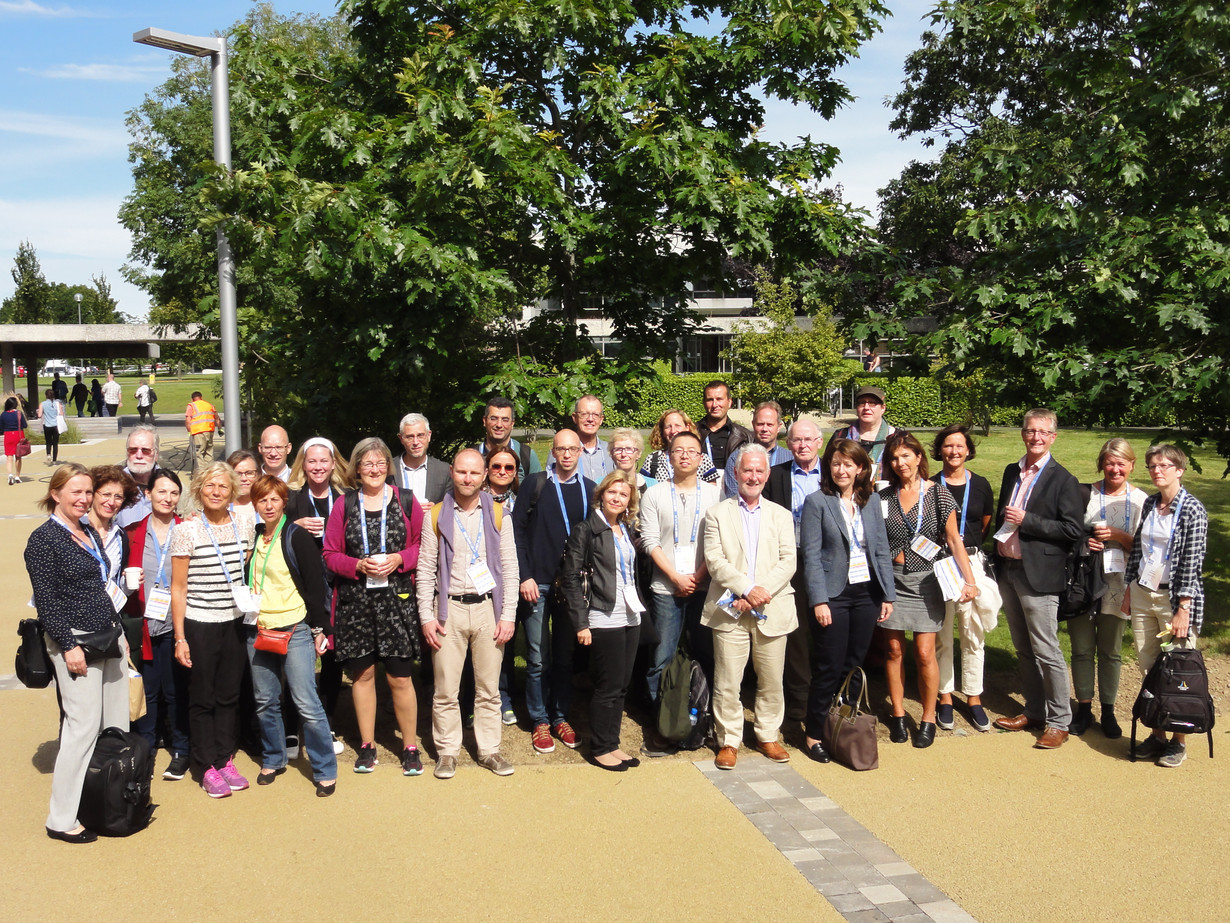Network
NW 27 Didactics, Learning and Teaching
Title
Educational research on didactics, teaching and learning in times of uncertainty. Societal demands, individual needs and scientific contributions in a changing world
Abstract
This special call in Network 27 would like to explore the challenges that teachers and students face in the context of rapid societal changes,poly-crisis and the emergence of new social and individual needs, especially with regard to times of uncertainty. At the same time, we invite you to examine the contribution of educational research to these socially relevant questions in more detail. This involves methodological issues, as well as research ethics. How can experiences of uncertainty and poly-crisis be empirically captured? How does a generally certainty-oriented research deal with fundamental uncertainty? How does research deal with the fact that its contribution is now fundamentally questioned in certain discourses?
The Call
The general theme of the ECER 2026, “Knowing and Acting: The changing conditions and potentials of education research“, encourages debate and dialogue connected to education and its central role in societies in times of uncertainty and poly-crisis. In addition, the call sheds light on the way in which educational research should shape the future of educational practice as well as promote a better understanding of the very conditions of scientific knowledge that are in flux.
This special call in Network 27 would like to explore the challenges that teachers and students face in the context of rapid societal changes,poly-crisis and the emergence of new social and individual needs, especially with regard to times of uncertainty. At the same time, we invite you to examine the contribution of educational research to these socially relevant questions in more detail. This involves methodological issues, as well as research ethics. How can experiences of uncertainty and poly-crisis be empirically captured? How does a generally certainty-oriented research deal with fundamental uncertainty? How does research deal with the fact that its contribution is now fundamentally questioned in certain discourses?
We invite contributions from scholars whose work deals with the aspects of uncertainty concerning research in didactics, teaching and learning and their epistemological reflection. The network will highlight four dimensions of educational research: teachers’ coping with uncertainty, students’ development and the enhancement of life skills, consequences of societal change, poly-crisis and uncertainty for didactics, teaching and learning, and the impact of uncertainty to theoretical frameworks and research methodology.
As didactics is concerned with the interrelation of teachers and students and their interaction on chosen content, we are especially interested in how research and intervention in didactics
- focuses on teachers and their integration of crucial issues, globally shared and locally specific, arising from the debates in society such as war, climate change and sustainability, diversity and social, gender, ethnic inequities, wellbeing; their rethinking of contents that were previously presented as ‘subjects’ or ‘disciplines’ in order to integrate complex questions calling for several disciplinary frameworks or social sensitive questions that are dependent of historical, cultural and political contexts; their handling with new requirements in times of uncertainty, the problems they raise when it comes to select, plan and assess the curriculum contents;
- takes into account the students as developing self with their own interests and fears, their specific developmental tasks in a complex, uncertain world; the role of students’ views on individual and societal issues and challenges at school, their empowerment to participate in curriculum development and the development of democratic structures concerning classroom interaction, content, and learning objectives;
- highlights classroom research which focuses on interaction in class, the choice of topics by teachers and students, challenges of powerful knowledge and epistemic quality, joint negotiation of meaning, democratic spaces of reflexion concerning societal demands and individual challenges, beliefs and interests, an intergenerational discourse of topics that matter.
We encourage colleagues to include reflexions on the tensions due to uncertainty and poly-crises arising in the considered research context, for instance:
- tensions between the transmission of a core of subject knowledge and the requirement to address complex problems related to many subjects, and/or socially relevant questions in diverse teaching and learning settings;
- tensions between what counts as school knowledge and uncertainty in education, the transformation of the students in the encounter with societal development and uncertainty;
- tensions between diverse teachers’ views and students’ standpoints, experiences and developmental tasks regarding societal challenges and an uncertain future, and the need of an intergenerational discourse on content being at stake in the classroom.
- tensions given by established theoretical frameworks and research methodology and the need to revise and innovate according to didactic contexts in times of uncertainty.
Since this topic is related to questions that are also discussed in other networks, we will organize joint sessions as far as possible for ECER 2026.
Contact Person(s)
Anke Wegner, wegner(at)uni-trier.de
NW 27 runs a mailing list and invites researchers to join. To join the mailing list, send a blank message to nw27-subscribe(at)lists.eera-ecer.de
Research Gate Project
“Didactics – Learning and teaching in Europe”
<link https: www.researchgate.net project didactics-learning-and-teaching-eera-network-27 _blank>Link
